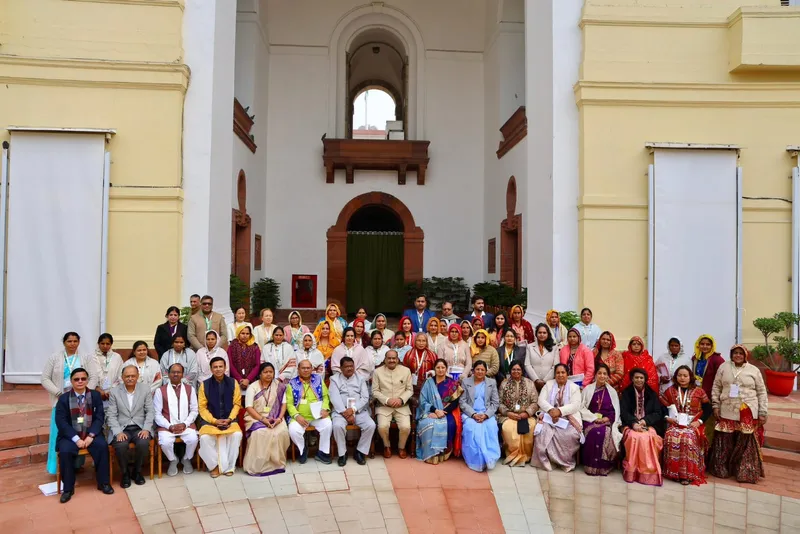Inclusion of rural, tribal women leads to effective governance: Speaker Om Birla
Earlier this week, Lok Sabha Speaker Om Birla addressed women representatives from Panchayati Raj institutions as part of the 'Panchayat Se Parliament 2.0' programme held in commemoration of the 150th birth anniversary of Bhagwan Birsa Munda.
Addressing the gathering at the Central Hall of Samvidhan Sadan in New Delhi on Monday, Lok Sabha Speaker Om Birla observed that including women, especially those from rural and tribal backgrounds, can lead to more sensitive and effective governance. He noted that women leaders from tribal communities have played pivotal roles in addressing issues such as clean water, sanitation, and education.
In his keynote address during the 'Panchayat Se Parliament 2.0' programme, the Speaker also praised the entrepreneurial spirit of tribal women instrumental in creating self-reliant villages through initiatives in traditional crafts, online businesses, and local production.

Women representatives with Speaker Om Birla
The Panchayat Se Parliament 2.0 event was aimed at empowering women representatives from Panchayati Raj Institutions (PRI) and saw wide participation from over 500 women leaders from 22 states and union territories. The programme was jointly organised by the Parliamentary Research and Training Institute for Democracies, the National Commission for Women, and the Ministry of Tribal Affairs in commemoration of the 150th birth anniversary of tribal freedom fighter Bhagwan Birsa Munda.
In his keynote address, Birla underscored the transformative power of women's leadership in strengthening democracy and driving socio-economic change. He particularly stressed the importance of technological advancements like artificial intelligence (AI) and innovation in governance, encouraging women representatives to embrace these tools for the betterment of their communities.
The Speaker also lauded the growing presence of women in panchayati raj institutions, with several states surpassing the mandated 33% reservation for women, reaching over 50% in some cases.
The Panchayat Se Parliament 2.0 event saw experts and Members of Parliament conduct workshops and interactive sessions. They focused on constitutional provisions related to women's leadership, with particular emphasis on the 73rd Amendment and the Provisions of the Panchayats (Extension to the Scheduled Areas) (PESA) Act. The discussions also covered various government schemes aimed at addressing tribal issues to ensure women PRI representatives were well-informed and equipped to drive the change in their respective regions.
The event was graced by dignitaries including the Union Minister for Women and Child Development, Annapurna Devi, and the Chairperson of the National Commission for Women, Vijaya Rahatkar. Utpal Kumar Singh, Secretary-General of the Lok Sabha, delivered the welcome address while the Union Minister of Tribal Affairs, Jual Oram, spoke during the second session of the day.
A key highlight of the event was the live demonstration of the Sansad-Bhashini, a speech-to-speech translation system, conducted by Speaker Om Birla. This innovative tool, developed in collaboration with the Bhashini team, aims to provide real-time translations, ensuring effective communication across language barriers.
The 'Panchayat Se Parliament 2.0' programme builds upon the success of its predecessor, 'Panchayat Se Parliament 2024', which also engaged 500 women sarpanch from across India and fostered a collaborative environment for women to share their experiences and best practices.
Women's participation in leadership roles has proven to have a profound impact on community development, leading to more targeted and effective policy implementation at the grassroots level.
Om Birla lauded the growing presence of women in panchayati raj institutions, with several states surpassing the mandated 33% reservation for women, reaching over 50% in some cases. With continued support and platforms for skill enhancement, women leaders across India can play a transformative role in shaping a more equitable and prosperous society.
Edited by Kanishk Singh







